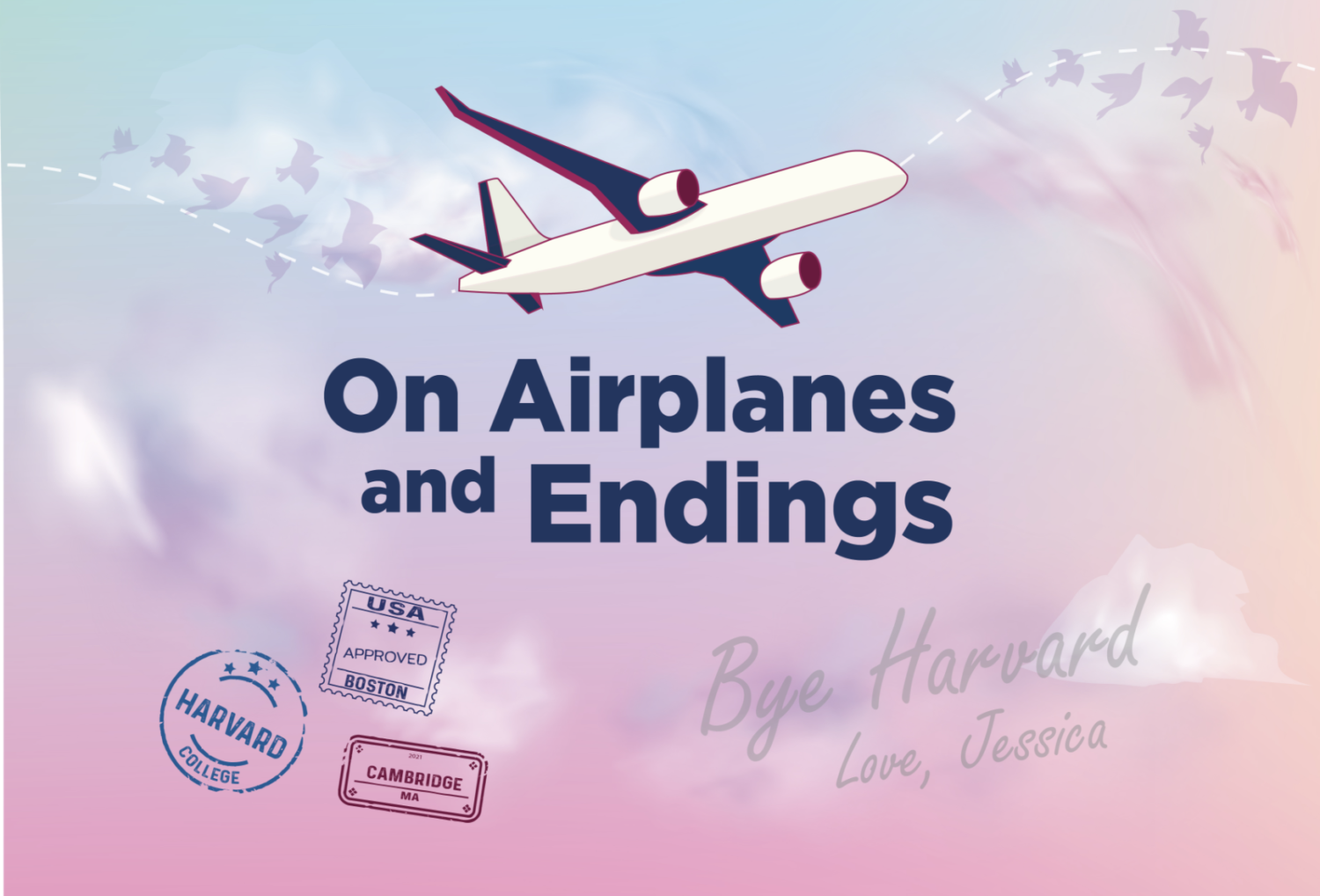I hate flying on planes. Both the throttling drive down the tarmac the moment before the plane takes off and the slightest inkling of turbulence thereafter throw my mind into an immediate panic unconsoled by the relative safety of airplane travel. By the end of a flight, I always find myself huddled against the airplane window, watching carefully for the moment the plane touches down. The finality of the landing permits a certain clarity: a definitive endpoint to the stress wrought by the uncertainty of the journey.
In my earliest days at Harvard, I imagined that graduation would much resemble the moment the plane lands. Having endured four long years of uncertainty — competitive fellowships applied for, leadership positions sought, and summer plans undone and rewritten — the spectacle of Commencement Day promised to communicate unmistakeable closure. I could not have predicted, of course, that a pandemic would upend that (idealized) assurance, along with every other marker of finality for which I had trained myself to look. The ubiquity of Zoom compels me to return to what once served as a virtual classroom weeks after I am no longer required to attend. Unexpected distance prevents me from offering a proper goodbye to friends that I have not seen in nearly sixteen months. And seeing one’s name flash across a television screen in a prerecorded ceremony confers a passive resolution, at best, rivaled with the decisive finality of a one-time ceremony. These signals may not have been the only possible markers of an ending, but in the absence of them, I find myself not quite knowing where else to look.
Perhaps the problem with searching for those moments of decisive finality is that they rarely exist in the first place. A traditional Commencement ceremony may have provided a convincing illusion of closure, but in the hours and days after Tercentenary Theatre had emptied of people, I imagine I would still find myself feeling adrift, no longer formally a Harvard student but not yet anything else. If the experience of having attended Harvard persists in the relationships and recollections that do not simply vanish at 2:31pm on a Thursday in late May, counting on an unequivocal moment of resolution is fruitless.
The same is true, I think, of longing for a true return to normal. As young, privileged Harvard students, we lead rather transitory lives, and there is rarely a ‘normal’ to which we may return. Normal is a moving target. It can provide little solace for those hoping to navigate change.
* * *
On a recent Sunday afternoon I completed my bi-annual, forty-minute drive home from campus for the final time. Clusters of brick buildings and an aura of perpetual, productive frenzy gave way to thirty miles of four-lane highways and, later, rows of one-story ranches with well-kept lawns framed by quiet, static streets. The end of the short drive again lacked the gravity of the end of a flight, and no ‘normal’ awaited my return. After all, the move was short-lived: a rest stop before a summer internship and post-graduate plans beckon me further south and, in September, to a different country. Nevertheless, the trip offered an unexpected pause, a moment to acknowledge the groundlessness I was feeling and, at the same time, set it aside. As I unpacked and repacked the cardboard boxes replete with letters and trinkets from friends from Harvard, high school, and everywhere else I had once been but no longer was, I understood that that feeling of groundlessness would recede once I had settled into wherever I was going next: dissipating slowly, not suddenly, but dissipating all the same.
With or without a grandiose ending, groundlessness awaits. It will reemerge at the end of the next era, too, and no amount of hoping for a neat conclusion will discourage its onset nor assuage its effects after its arrival. The best we can do to abide it, I think, is to reinterpret it. Perhaps groundlessness need not be the product of irresolution, but rather, those meaningful, if fleeting, interludes: the space and time between where we were and where we are going.



